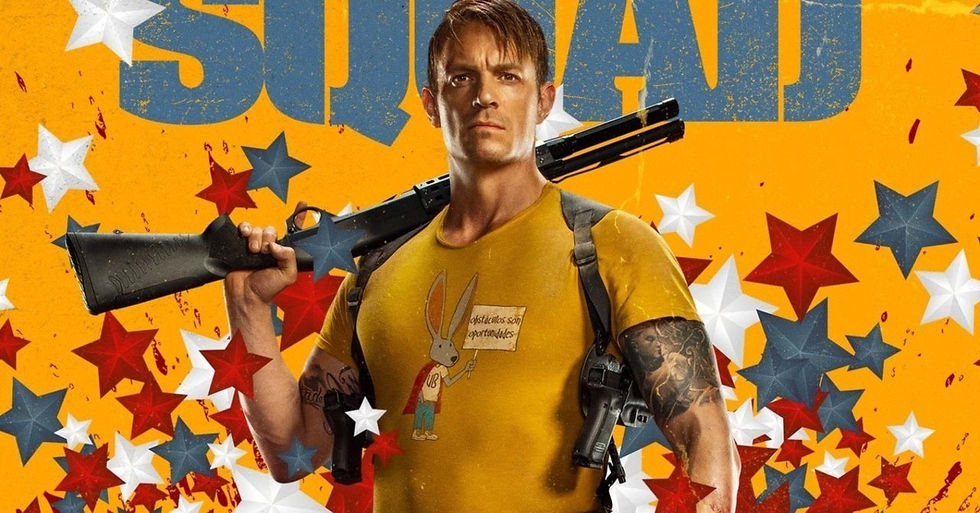The Suicide Squad: The Cost of Peace
- ogradyfilm
- Aug 14, 2021
- 2 min read
[The following essay contains MAJOR SPOILERS; YOU HAVE BEEN WARNED!]

During his promotional tour for The Suicide Squad, John Cena described his character, Peacemaker, as a “douchey, bro-y Captain America.” It’s an easy comparison to make, considering the fact that the chrome-plated antihero’s dialogue consists almost entirely of such obliviously ironic one-liners as:
I cherish peace with all my heart. I don’t care how many men, women, and children I need to kill to get it.
...and:
If this whole beach was completely covered in dicks, and somebody said I had to eat every dick until the beach was clean for liberty, I would say, 'No problemo!'
Indeed, defined as he is by his exaggerated machismo, warped jingoism, and an overall lack of self-awareness, Peacemaker initially appears to be the perfect personification of the movie’s irreverent, pitch-black sense of humor.
Then, as the story accelerates towards its explosive climax, he betrays and brutally murders veteran Squad commander Rick Flag. And suddenly, any semblance of levity evaporates, and the “parody” is no longer funny.

In retrospect, the clash between these two consummate professionals is as inevitable as it is tragic: while they’re both highly trained operatives with nearly identical skillsets, their personal values couldn’t diverge more dramatically. When Colonel Flag discovers that the U.S. government was responsible for the experimentation on Starro the Conqueror—and, consequently, for the use of political dissidents as "test subjects"—he refuses to participate in Amanda Waller’s cover-up, instead conspiring with Ratcatcher 2 to release the Project Starfish data files to the public. Peacemaker, on the other hand, is so fanatically devoted to “his country” that he is simply incapable of deviating from his mission—despite his clear reluctance to kill a fellow soldier.
It’s a variation on the classic conflict between idealism and cynicism—though in this particular case, the distinction between the two extremes is somewhat muddled. Flag defies his corrupt superiors in favor of following his conscience—at the cost of his own life. Peacemaker, meanwhile, chooses to adhere to his twisted brand of nationalism—and, in the process, compromises his morals. Regrettably, such an ethical stalemate can only be resolved through bloodshed.

Critics have justifiably praised The Suicide Squad’s darkly comic sensibilities, but in my opinion, Gunn’s greatest strength as a storyteller lies in his talent for abruptly yet seamlessly shifting narrative gears: rather than paying off a running joke with a traditional “punch line,” he delivers a thoroughly compelling and nuanced dialectic on the nebulous nature of loyalty and patriotism—without contradicting the previously established tone, themes, or characterization.
And that is a display of finesse worthy of Task Force X (well, of Team B, anyway).





Comments